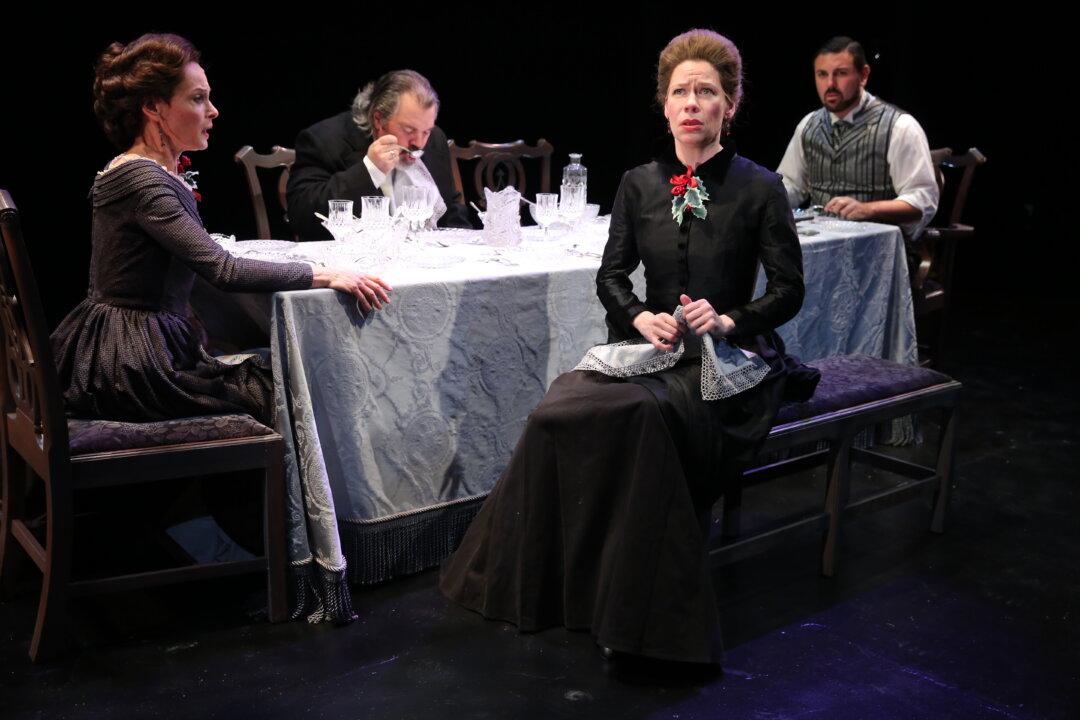NEW YORK—The fragility and fleetingness of life is examined by the Peccadillo Theater Company in its excellent presentation of “A Wilder Christmas,” the umbrella title for two rarely performed one-act works by Thornton Wilder. Both “The Long Christmas Dinner” and “Pullman Car Hiawatha” quietly and powerfully examine just how short our time on this planet actually is.

(L–R) Giselle Wolf, Brad Fryman, Barbra Wengerd, and John Pasha in the rarely produced "The Long Christmas Dinner" by Thornton Wilder. Carol Rosegg





